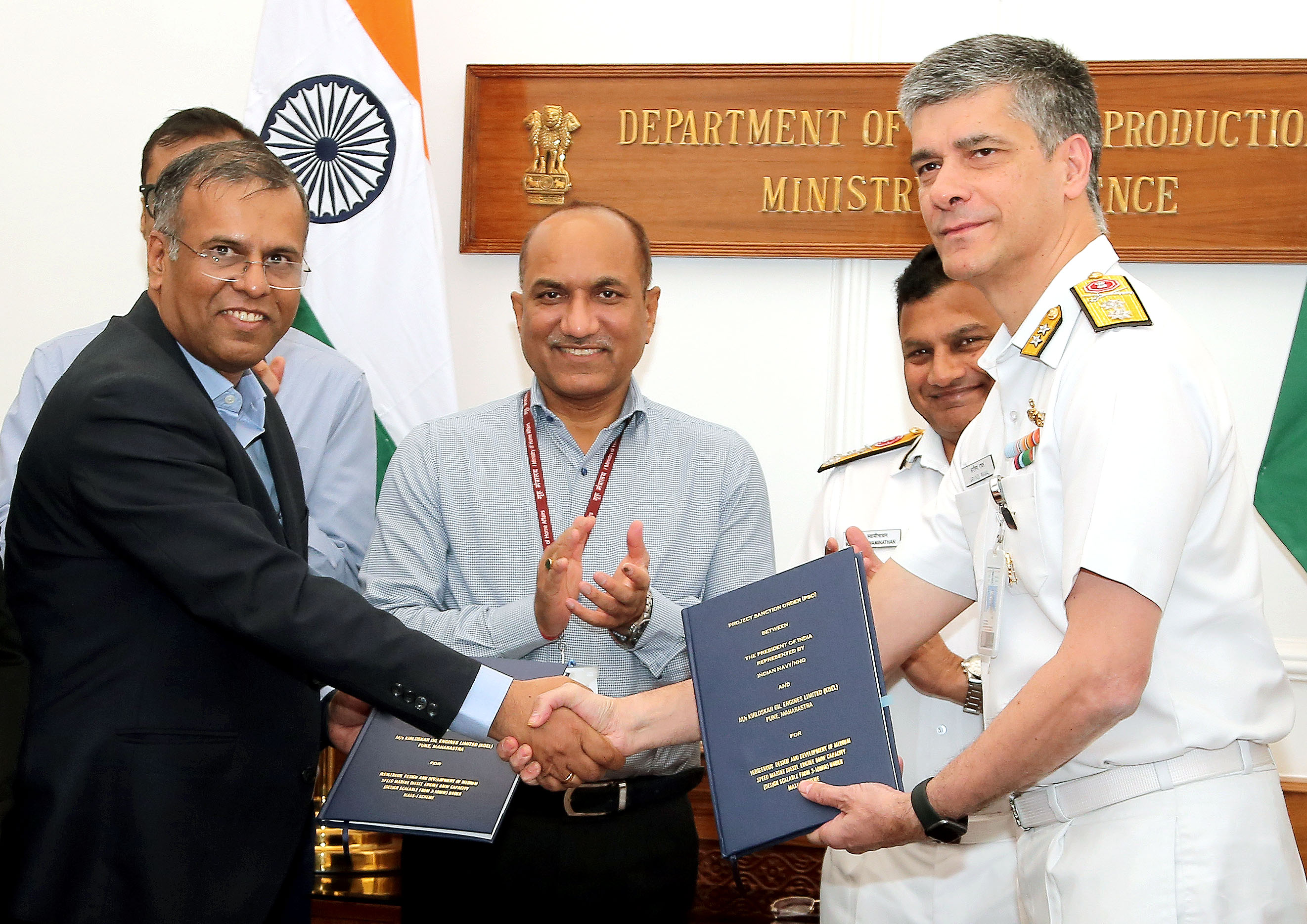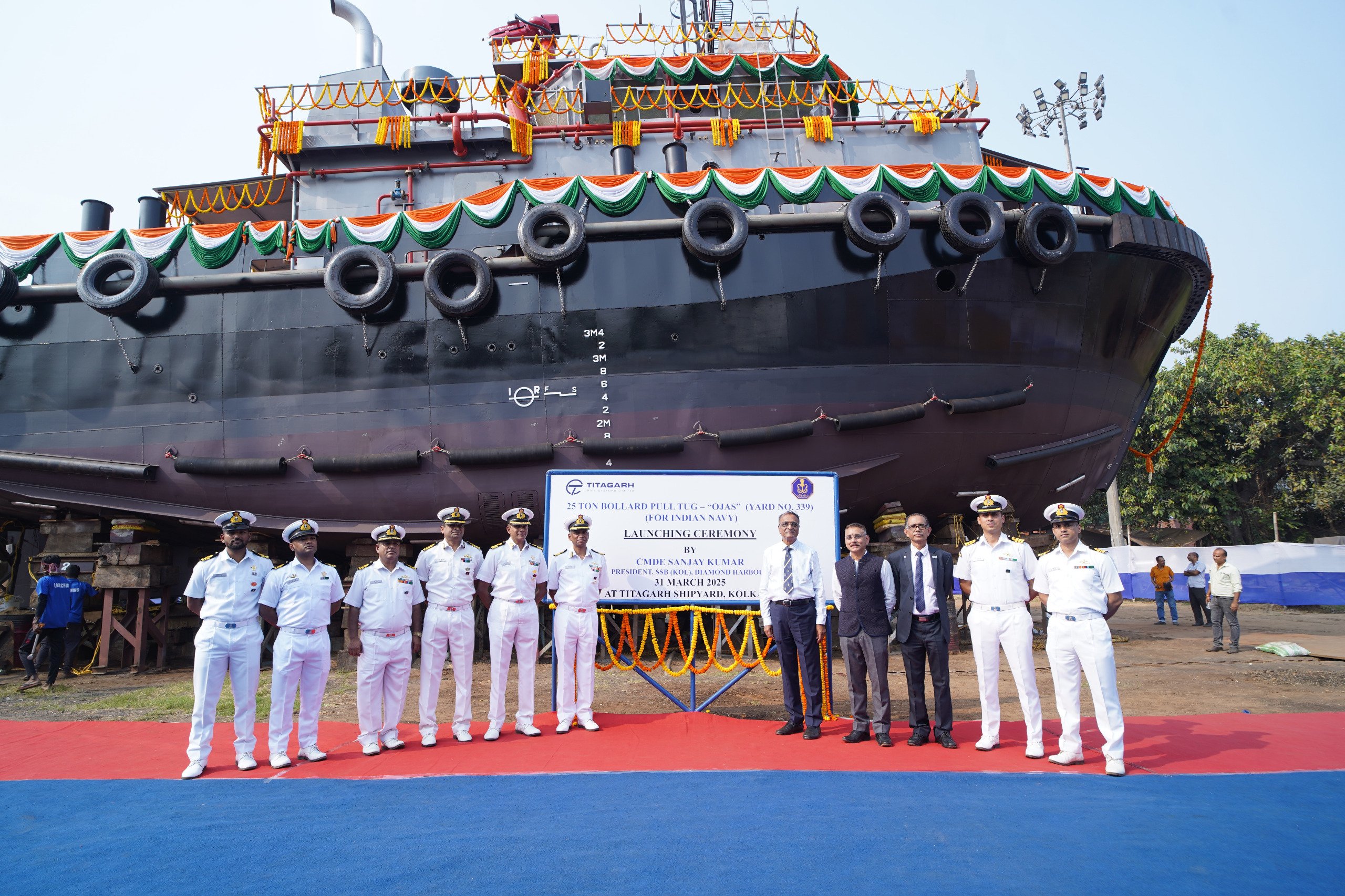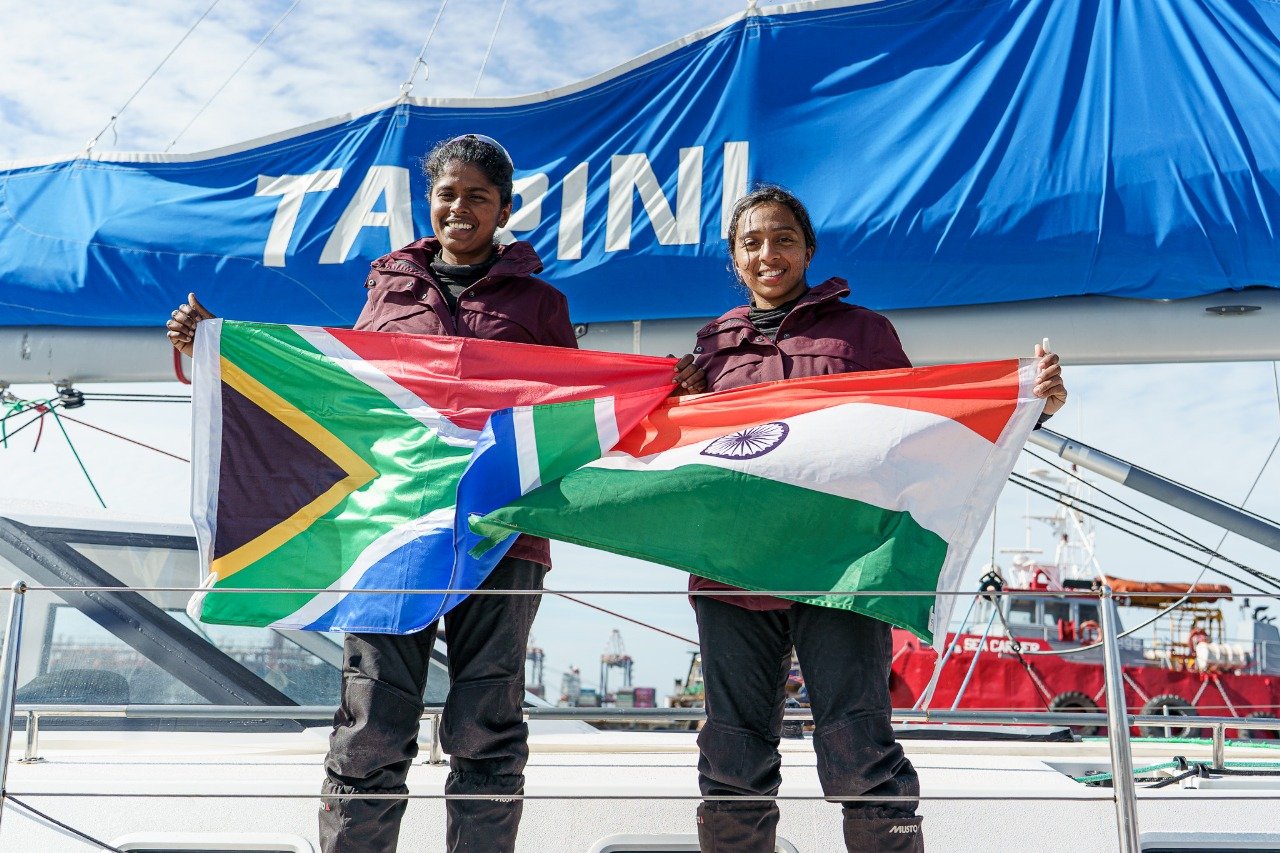In a significant step towards self-reliance in defence manufacturing, a Project Sanction Order (PSO) under the ‘Make-I’ category has been signed between the Indian Navy and Kirloskar Oil Engines Limited for the design and development of a 6MW Medium Speed Marine Diesel Engine. The agreement was formalised in the presence of Shri Sanjeev Kumar, Secretary (Defence Production), and Vice Admiral Krishna Swaminathan, Vice Chief of the Naval Staff, at South Block, New Delhi.
This critical defence-industry partnership marks a major leap forward in the Government of India’s Aatmanirbharta (self-reliance) initiative in defence technology, aimed at reducing dependence on foreign Original Equipment Manufacturers (OEMs) for high-capacity marine propulsion systems.
Indigenous Marine Engine Development
The project will involve the development of a prototype diesel engine with an indigenous content of over 50%, at an estimated cost of ₹270 crore, of which 70% will be funded by the Government of India. In addition to the 6MW engine, the project scope includes the detailed design development of marine diesel engines in the range of 3MW to 10MW.
Once developed, these engines will be used for main propulsion and power generation on board Indian Navy and Indian Coast Guard ships, supporting operational readiness and reducing the reliance on imported propulsion technologies.
Reducing Dependency on Imports
Until now, India has depended heavily on foreign OEMs for high-capacity diesel engines, a segment critical to the operational capability of naval platforms. The signing of this project sanction order signals the beginning of a new chapter in indigenous marine engine design and manufacturing, and is expected to drive the creation of a strong defence manufacturing ecosystem within the country.
Strengthening Aatmanirbhar Bharat
The initiative is aligned with the Government’s larger vision of Aatmanirbhar Bharat, as championed by Prime Minister Shri Narendra Modi, and supports the push to indigenise critical defence technologies. The project will not only conserve foreign exchange but also accelerate capacity building, boost employment opportunities, and foster a robust industrial base in the marine and defence sectors.
The Indian Navy’s proactive role in enabling such projects reflects its continued commitment to fostering strategic self-reliance and innovation within the country’s defence establishment. This development marks a key milestone in India’s journey towards becoming a global hub for defence manufacturing and technology.














